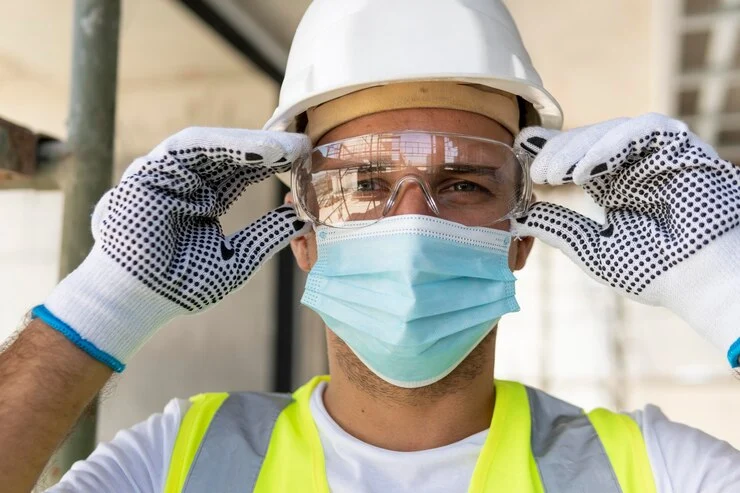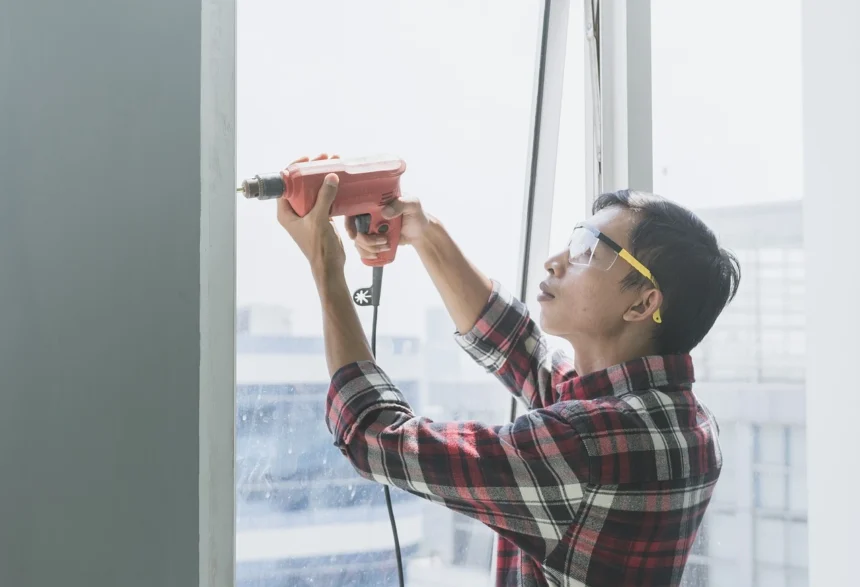When working in environments where power tools and nails are involved, safety is critical. One common hazard is nails ricocheting off surfaces and hitting safety glasses, which can be alarming and dangerous if not properly addressed. This phenomenon of nail ricocheting off safety glasses can lead to serious injuries. Here, we will dive deep into why nails ricochet, how safety glasses protect you, and what steps you can take to prevent this from happening.
What Causes a Nail to Ricochet?
Understanding the root cause of ricocheting nails can help you take the necessary precautions. When a nail strikes a hard or uneven surface at the wrong angle, it can bounce back instead of penetrating the material. Factors like the type of nail, the angle of insertion, and the material’s hardness play a crucial role in this.
- Hard surfaces like metal or stone increase the chances of ricochet.
- Improper nail angle can cause the nail to bounce back instead of going straight into the material.
- Old or defective nails may bend or ricochet upon impact.
Are Safety Glasses Enough Protection?
Safety glasses are the first line of defense when working with nails and power tools. They are designed to protect your eyes from flying debris, dust, and objects like ricocheting nails. While they offer significant protection, not all safety glasses are created equal.
Key Features of Effective Safety Glasses:
- Shatterproof lenses: Made from polycarbonate materials, which can withstand impact.
- Full coverage: Wraparound designs offer protection from all angles.
- Anti-fog and scratch-resistant coatings** ensure clear vision at all times.
Common Scenarios Where Nails May Ricochet
Nails can ricochet in various work environments, but some scenarios are more prone to this issue:
- Framing with a nail gun: If the nail gun is not positioned correctly or the wood is too dense, the nail may bounce back.
- Installing metal fasteners: Metal surfaces are harder to penetrate, leading to an increased chance of ricochet.
- Working with old or brittle wood: Sometimes, wood that is too dry or hard can cause nails to bounce back rather than drive through.
Steps to Prevent Nail Ricochets
Preventing ricochets is not only about wearing protective gear but also about using proper techniques. Here are some measures you can implement to reduce the risk:
Use the Right Type of Nails
Choosing the correct nail for the material you’re working on can reduce ricochet. For example:
- Thin nails are more suitable for delicate materials like drywall.
- Thicker, sturdier nails are better for harder surfaces like wood or concrete.
Check the Surface Before You Nail
Inspect the surface you’re working on to identify any hard spots that could cause the nail to ricochet. Avoid nailing near knots in wood or other hard areas.
Position Your Nail Gun Correctly
If you’re using a nail gun, make sure it’s positioned at the correct angle, ideally perpendicular to the surface. Avoid holding it at an angle that could send the nail flying back.
Wear the Proper Protective Equipment
Besides safety glasses, you should also consider wearing gloves, long sleeves, and a hard hat. This extra gear can offer protection from flying nails or debris.

What to Do If a Nail Ricochets Off Your Safety Glasses?
If a nail ricochets off your safety glasses, you may feel startled or shaken. The first thing to do is stay calm and evaluate the situation.
- Step back: Stop what you’re doing immediately to prevent further injury.
- Inspect your safety glasses: Ensure that they are still intact and not damaged. If there is any crack or break, replace them before continuing.
- Check for injuries: While the safety glasses may have protected your eyes, check for any impact to your face or hands.
Are All Safety Glasses Created Equal?
Not all safety glasses are suitable for every job. It’s essential to choose the right type of glasses for your specific task to ensure maximum protection.
ANSI-Approved Safety Glasses
When purchasing safety glasses, look for the ANSI Z87.1 marking. This certification ensures that the glasses meet the required standards for impact resistance.
Polycarbonate Lenses for Maximum Protection
Polycarbonate is the most impact-resistant material used for safety glasses. This type of lens can withstand the force of flying nails, ensuring that your eyes remain protected.
Consider Prescription Safety Glasses
If you wear prescription glasses, you may want to invest in prescription safety glasses. These offer the same protection as standard safety glasses but with the added benefit of vision correction.
Why Eye Protection Is Non-Negotiable?
The eyes are among the body’s most delicate and vulnerable areas. A nail ricocheting off a surface and hitting your face could lead to severe injury or even blindness. Safety glasses are a small investment compared to the potential cost of an eye injury.
Statistics on Eye Injuries in the Workplace:
- According to the National Institute for Occupational Safety and Health (NIOSH), over 2,000 eye injuries happen daily in the workplace.
- 90% of these injuries could have been prevented by wearing appropriate protective eyewear.
What Other Protective Gear Should You Wear?
Aside from safety glasses, there are several other essential items of protective gear that you should wear to avoid injury when working with nails:
- Hard hats: To shield your head from airborne debris or falling objects.
- Gloves: For hand protection when handling sharp materials or power tools.
- Hearing protection: If you’re using loud machinery, ear protection is necessary to prevent long-term hearing damage.
Tips for Maintaining Your Safety Glasses
To ensure that your safety glasses provide continuous protection, proper maintenance is essential. Follow these tips to extend the life of your safety gear:
- Clean them regularly: Use a microfiber cloth and cleaning solution to wipe off dirt and debris.
- Store them in a case: Protect your glasses from scratches when not in use.
- Check for damage: Regularly inspect your glasses for cracks or loose frames. If they’re damaged, replace them immediately.
Conclusion
In environments where power tools and nails are in use, nail ricochets pose a real threat. While safety glasses can offer substantial protection, understanding the risks and taking preventive measures are equally important. Always use the right tools, ensure proper positioning, and invest in high-quality safety gear like ANSI-approved safety glasses to minimize the risk of injury. By being proactive, you can stay safe while working and avoid the dangers of nails ricocheting off surfaces.




